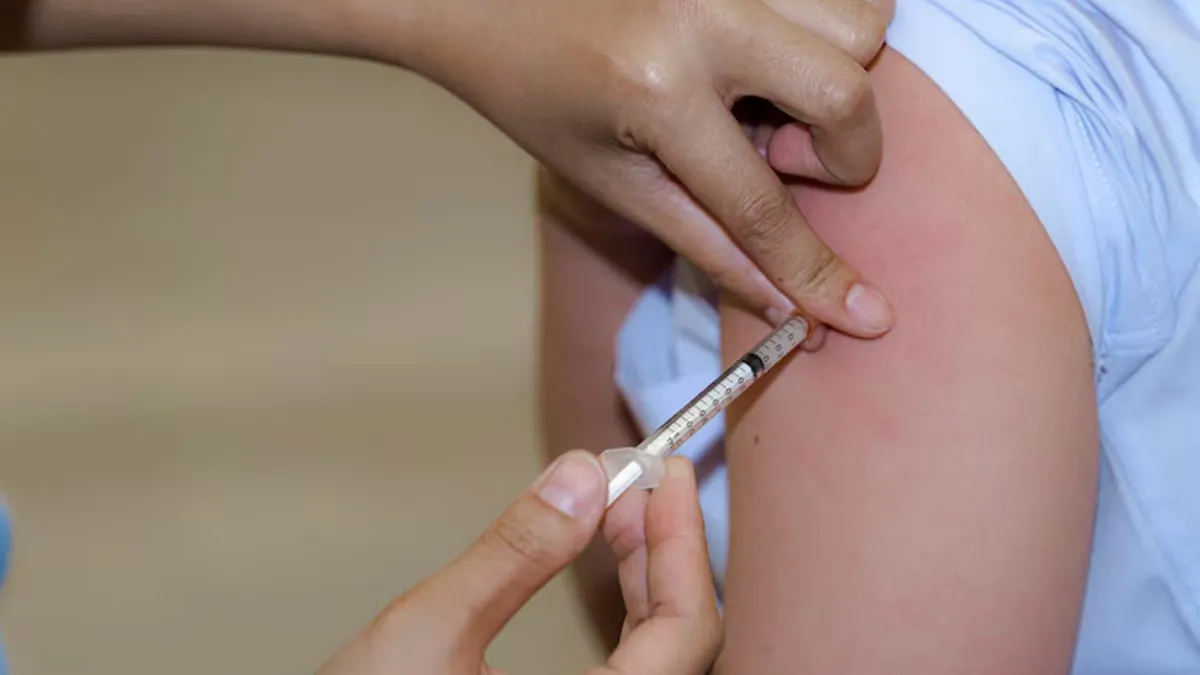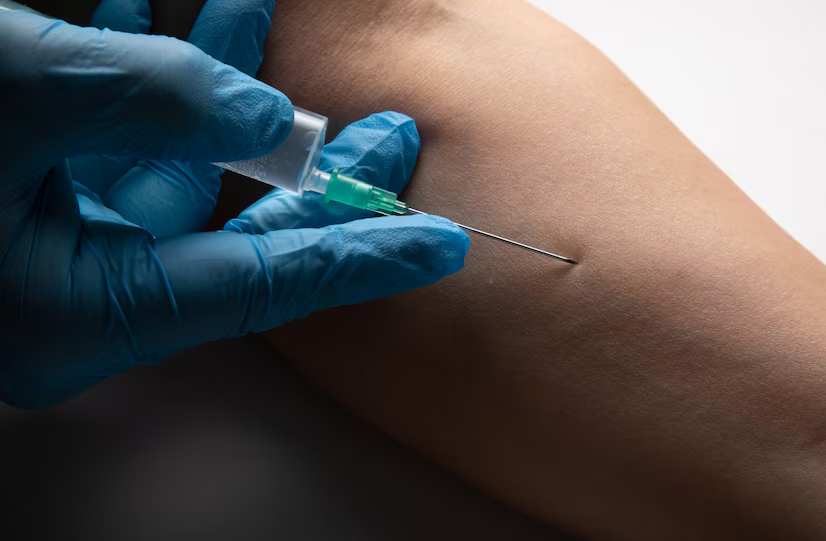
When your child sustains a cut, scrape, or puncture wound, as parents the first instinct is to ask, 'Do they need a tetanus shot?' As per the expert, it's a valid question since tetanus is a preventable and serious illness. However, the response isn't always a straight yes. So, when exactly does your child actually need a tetanus shot for a wound? We got in touch with our expert, Dr Bhumesh Tyagi, Consultant, General Medicine and Physician, Shardacare, Health City, Noida, and here is what he explained to us.
Table of Content:-
What Is Tetanus and Why Is It Hazardous?
Tetanus, or lockjaw, is caused by the bacteria Clostridium tetani, which is present in soil, dust, and even animal dung. When it invades the body through cracked skin, particularly deep cuts, it can release a potent toxin that acts on the nervous system, causing stiffness of the muscles, spasms of pain, and a hard time breathing. If not treated, tetanus is fatal. However, it can be prevented by vaccination.
Ideal Childhood Tetanus Vaccine Schedule
In India and most countries, tetanus protection is included in the DTaP or DTwP vaccine (Diphtheria, Tetanus, and Pertussis). The recommended schedule is:
Primary series: 6, 10, and 14 weeks
Boosters: 16 to 24 months, 4 to 6 years, and once again during adolescence
Later boosters: Every 10 years (sometimes sooner after some injuries)
"If your child has been following the schedule, they're probably well-protected, but don't think every wound is safe," Dr Tyagi highlighted.
Also Read: Post-Pandemic Gut Check: Why Your Digestion Feels Off And What Stress Has To Do With It

Does Every Injury Need a Tetanus Shot?
Dr Tyagi answered that it is not necessary that every injury needs a tetanus shot. Whether your child needs a tetanus shot depends on the following two things:
The type of wound
His or her vaccination history
What Are High-Risk Wounds?
These types of injuries are more likely to require a tetanus booster:
Deep puncture wounds (such as from nails or animal bites)
Wounds contaminated with dirt, rust, or manure
Burns, frostbite, or crush injuries
Wounds that are not cleaned properly or are treated too late
What Are Low-Risk Wounds?
Minor cuts, abrasions, or clean wounds with minimal contamination
Paper cuts or scrapes on clean skin
In most low-risk injuries, if your child is current on all their vaccinations, a tetanus booster is not usually necessary.
When Is a Booster Required?
According to Dr Tyagi, physicians will usually prescribe a tetanus booster if it's been more than five years since the last vaccination and the wound is high-risk. For instance:
"If your kid walked on a rusty nail and hasn't received a tetanus shot in more than five years, get thee to the doctor," said Dr Tyagi.
If the previous shot was within five years, and the wound isn't severe, there is typically no need for another one.

What Parents Should Do After an Injury
Wash the wound right away with soap and water.
Use an antiseptic and bandage it with a clean bandage.
Watch the wound for infection.
Review your child's vaccination history.
Consult a physician if the wound is deep, dirty, or if you are unsure about your previous tetanus shot.
Tetanus Myths Parents Still Believe
"Tetanus is caused by rust."
It's not rust, but the bacteria that typically live on rusty things that are the problem.
"Only serious injuries require a shot."
Even minor punctures can harbour bacteria. It's what kind and how clean the wound is that counts.
Bottomline
Tetanus is serious, but alarm isn't required each time your child skims a knee. If your child is current with vaccinations and the cut is superficial, odds are that they're already immune. When unsure, call your physician, particularly if the cut has dirt in it, is deep, or isn't healing well.
Also watch this video
How we keep this article up to date:
We work with experts and keep a close eye on the latest in health and wellness. Whenever there is a new research or helpful information, we update our articles with accurate and useful advice.
Current Version